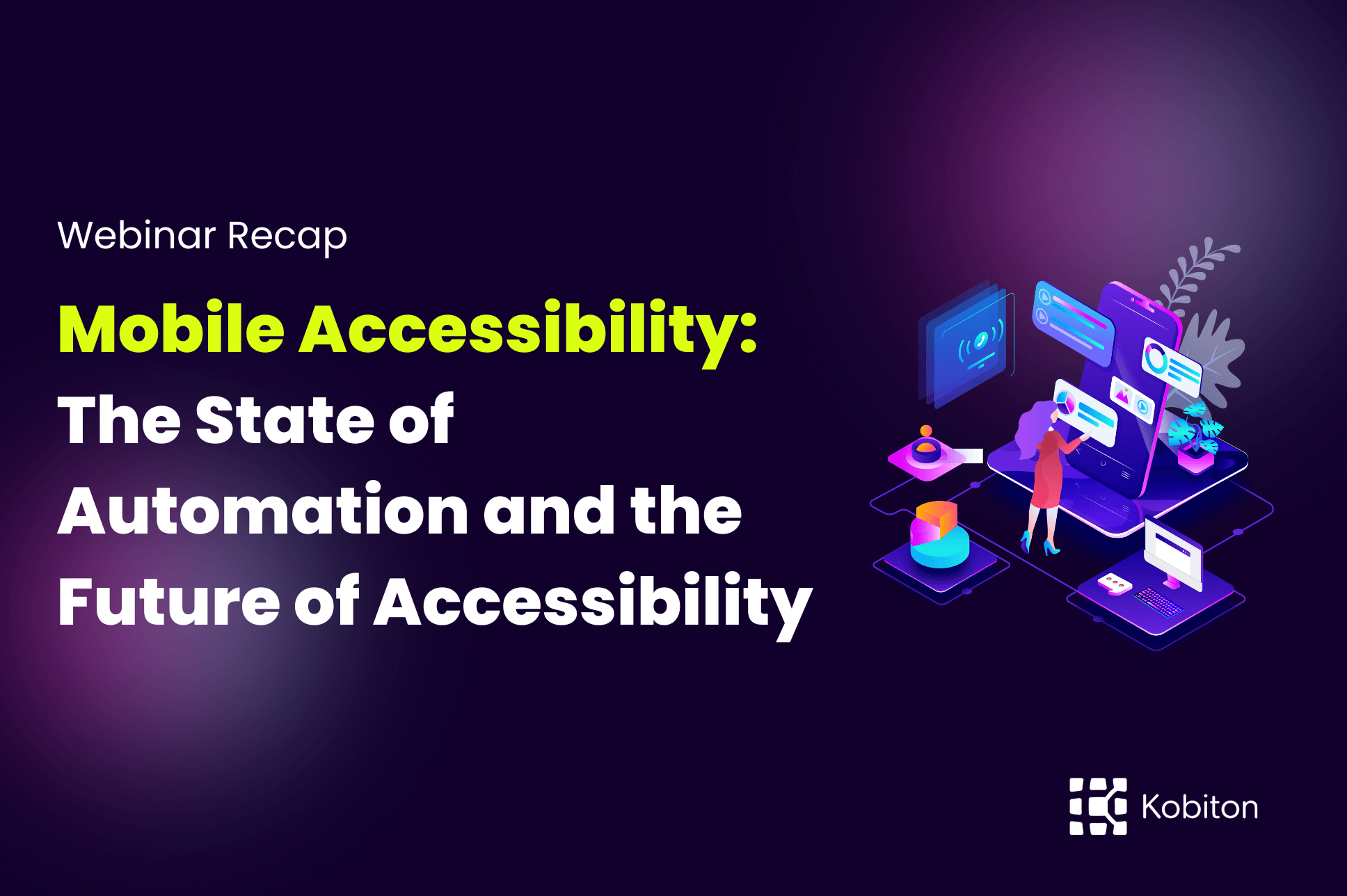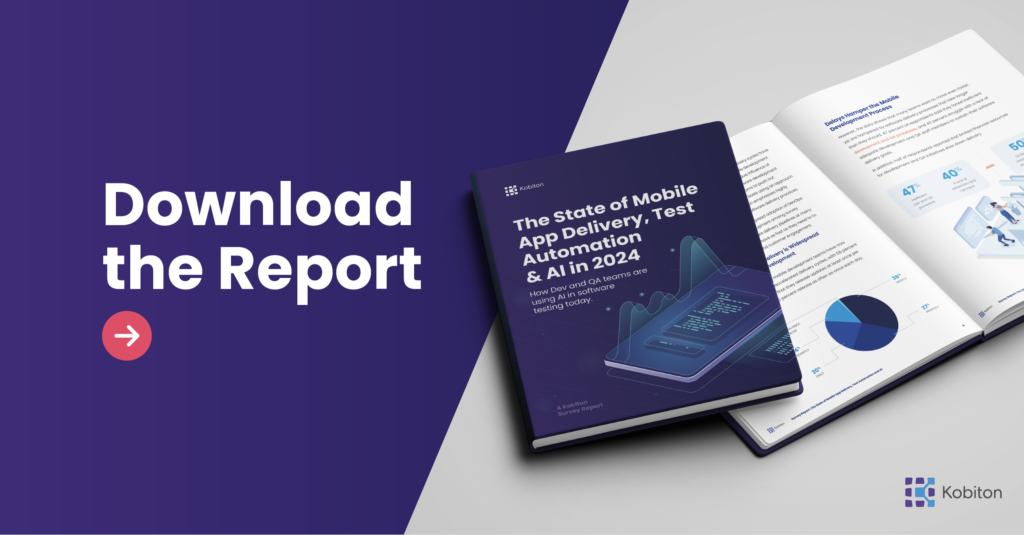
Webinar Recap: The State of Automation and the Future of Accessibility

Cara Suarez
Mobile application development and testing is no stranger to tech; after all, it’s an industry that entirely exists to produce digital tools that make the world a better place.
It might come as no surprise, then, that generative AI tools are more frequently being used as part of that development and testing process.
In a new report released by Kobiton, 75% of respondents reported that slow mobile app release cycles cost their companies at least $100,000 per year; and 13% said it was costing them between $1M and $10M annually. Since 75% of respondents said mobile apps were responsible for at least a quarter of their companies’ total revenue, slow release cycles are not only a threat to company bottom lines but to the very viability of the businesses.
The industry isn’t going anywhere — app users constantly want new features or bug fixes, and companies are anxious to maintain a competitive advantage, and to grow or solidify customer relationships.
Unfortunately, those updates frequently take longer than most companies would prefer, leading many of them to deploy AI-based development and testing tools.

According to the new Kobiton report, mobile app update delays are being driven by three issues: limited financial resources in the Developer and QA organizations; inefficient development and QA processes; and a lack of skilled developer and QA labor. Forty percent of respondents said these issues are having a negative impact on customer satisfaction, 33% said it was causing missed revenue opportunities, and 26% said it was leading to an increase in developer churn.
Sixty percent of Kobiton’s survey respondents said they are currently using generative AI tools in their QA cycles to update scripts or code, 55% said they are using these tools to analyze test results, and 47% are using them to generate test scripts. Fifty percent of respondents said they believe AI-driven test automation can eventually replace manual testing for mobile apps, and 34% said they are excited about the potential of AI to increase software development productivity. Meanwhile, 22% expressed concern that AI might negatively impact software quality, and 20% said AI tools might hurt developer and tester career opportunities.
When asked which AI capabilities would be most beneficial to their organization’s mobile test automation strategy, a majority (51%) of respondents selected predictive analytics to forecast potential defects, followed by tools for generating test cases and test data (45%), and natural language processing tools for better test case documentation (44%).
Software developers and testers responding to the new survey span industries and are building a wide variety of mobile apps, ranging from social networking to video games and business tools. A plurality of respondents (38%) said they are releasing mobile app updates weekly and 20% said they are updating daily. One hundred developers and testers involved in the development of mobile apps responded to Kobiton’s survey in October. A majority of the respondents (62%) are working in companies with at least $100 million in annual revenue.
It’s apparent that the use of AI tools for mobile app testing is growing, and developers and testers are excited to further expand the use of these tools. Where will it take us next? Only time will tell.
Check out the complete Kobiton State of Mobile App Delivery, Test Automation and AI study right here.